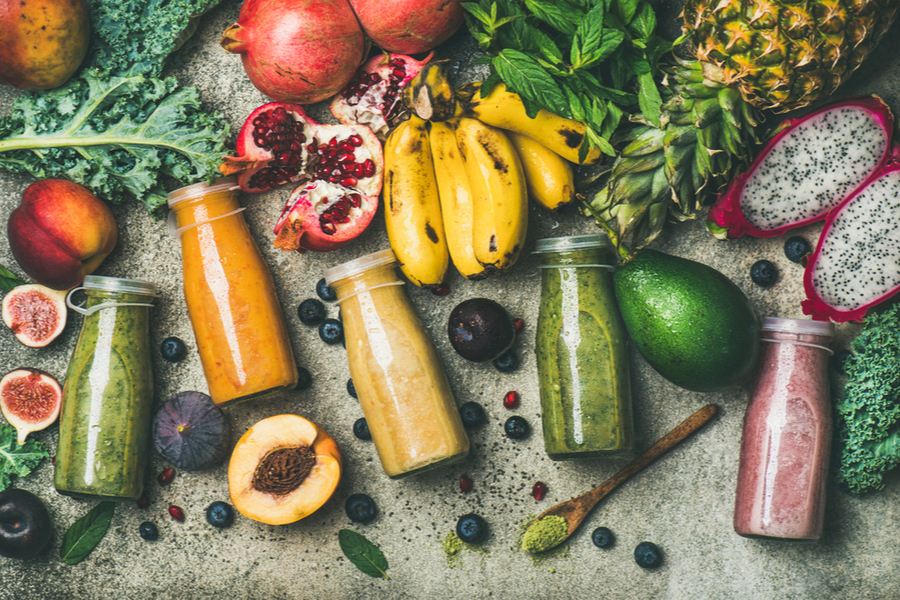Do we really need to detox?

Is a detox really necessary? According to a growing band of nutritionists, the answer is no.
‘Every day your metabolism produces substances such as carbon dioxide, lactic acid and free radicals, while extra toxic load comes from alcohol and pollution,’ says nutritionist Angela Dowden. ‘But your body is equipped to deal with these before they build up and poison you.’
Nutritional therapist Eve Kalinik agrees. ‘There’s absolutely no scientific evidence to back up the need to detox,’ she says. ‘The body has highly developed mechanisms such as the liver, kidneys and gut to do that for you.
‘Of course, if you push a system too far, those organs will have to work harder, but that’s not to say you then need to go on an extreme detox, because your body will naturally regulate itself.’
DILEMMAS WITH DETOX
Though clean eating can increase energy, improve bowel movements, clear sinuses, reduce infections and sharpen your mind, some detoxes can be counter-productive. You may feel virtuous on a juice fast, but you’ll miss out on fibre as it’s removed with the pulp, possibly take in large quantities of sugar and, ironically, deny yourself the very proteins needed for your detoxification enzymes to do their job properly, says Eve.
And, while going raw may preserve some plant enzymes, eschewing cooked foods means you’ll miss out on valuable nutrients.
‘Cooking helps with the absorption of some beneficial compounds,’ explains Angela, ‘in particular, fat-soluble carotenoids such as beta carotene, lycopene and lutein.’ Eat spinach raw and you’ll absorb less iron and calcium, while cooking tough veg such as asparagus breaks down its fibrous cells, enabling you to absorb more essential vitamins.
EAT SMART
While extreme detoxing isn’t really necessary, there’s plenty you can do to help your body deal with toxins. One of the best ways to directly influence liver function is to eat more turmeric, which has a unique action on the organ.
‘There’s often an accumulation of toxins in the first phase of the liver’s detoxification process,’ explains Eve. ‘Turmeric speeds this up, but you don’t want a build up of toxins in its second phase. Turmeric acts to even out the flow of toxins through the liver.’
Cruciferous vegetables also support your body’s detox processes, so fill up on liver-friendly broccoli, cauliflower, cabbage, kale and sprouts.
Another way to get clever with your diet is to rethink elimination regimes. Rather than cutting out whole food groups, which places a stress on your system and means you miss out on vital nutrients, be selective in your choices. If you want to reduce gluten, for example, you don’t need to cut out wheat entirely. Sourdough bread contains gluten, but the fermentation process almost completely degrades it, so it’s easier for your body to digest.
You can apply the same smart thinking to many dairy foods, too. ‘Keffir is one of the most beneficial sources of gut-friendly probiotics you can eat,’ says Eve, ‘and because it’s fermented, it only contains 1% lactose.’
Likewise, by choosing unpasteurised hard cheeses, you won’t miss out on the natural probiotics and enzymes lost in the pasteurisation process.
Looking after your digestive system is also important. ‘Your gut plays a massive role in how you detoxify and how you manage inflammation,’ says Eve, whose tips for good gut health include taking in a form of fermented food on a daily basis. ‘Sauerkraut, kimchi and miso are all bursting with natural probiotics, and deliver beneficial bacteria to the gut.’
Prebiotics will feed the gut’s friendly bacteria, so fill up on onions, garlic, Jerusalem artichokes, oats and chicory.
THE BIGGER PICTURE
So does this mean you should forget about restricting your diet? It’s more about balance. Going dry for a month is good, for example, but don’t go mad when you get back on the wagon or you’ll pay the price.
‘If you go from drinking nothing at all to suddenly bingeing, you won’t have built up the enzymes that break down alcohol,’ explains Eve.
And while there isn’t the research to back up juicing or fasting, it can help you to change unhealthy eating patterns. Go a week or two without refined sugar and you’ll soon find many foods too sweet for your palate. Cut out added salt and, before long, most processed foods will taste far too salty, meaning your blood sugar and cholesterol levels will be healthier over the long term.
Juicing and eating raw veg can be very refreshing, but if you give it a go, do so before 4pm, says Dr Harold Stossier, of Austria’s Vivamayr clinic, then it won’t strain your digestion.
‘The best thing you can do to help your body’s natural detoxification processes is to eat more antioxidant-rich fruit and vegetables [red grapes, blueberries, leafy greens, carrots and sweet potatoes],’ advises Eve. ‘Toxins will generate free radicals, but antioxidants neutralise them.’
Combine this with mindful eating, meeting your emotional needs at source rather than with food, and asking your body what it really wants to eat, and you’ll go a long way to creating a healthier you in 2017.
THE JUICING LOWDOWN
INCLUDE
Celery, carrots, cabbage, berries, kiwis, spinach, beetroot and leafy greens.
AVOID
Bananas and high-fructose fruits such as pears, cherries and watermelon. Avocado, apple seeds, carrot and rhubarb tops, and the tough skins of kiwi, pineapple and mango.
Read more: Is our addiction to the effects of sugar a spiritual crisis?













